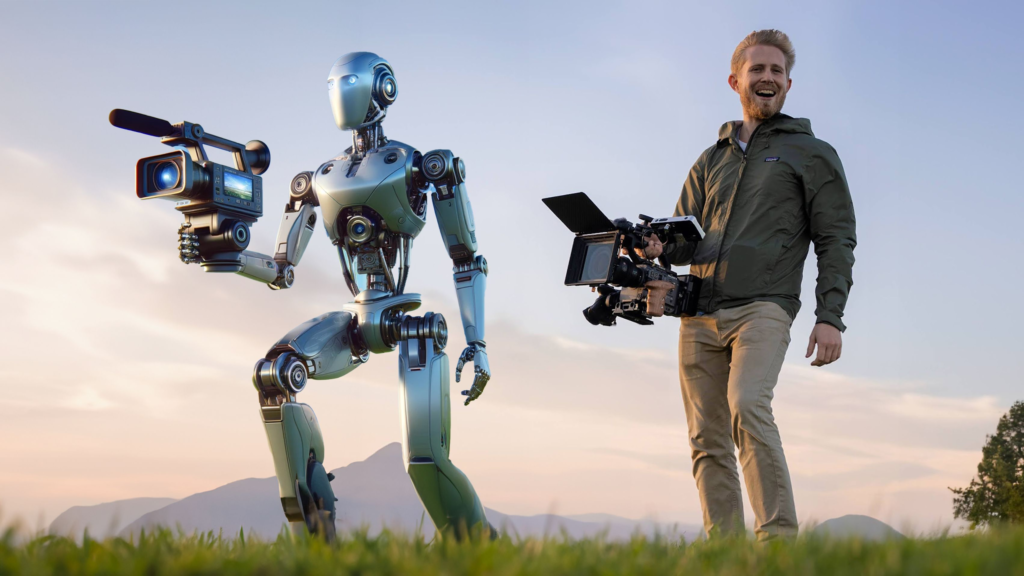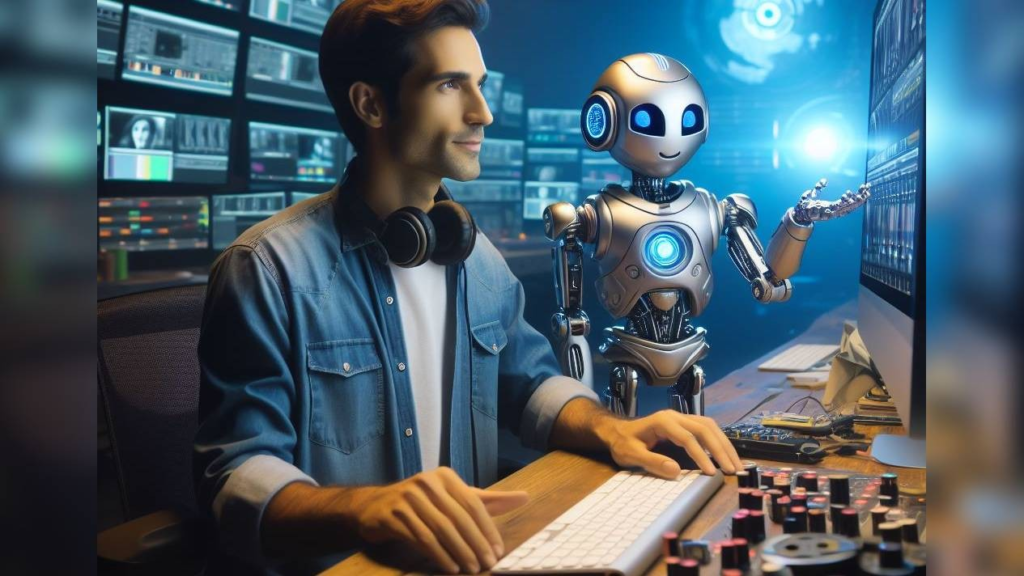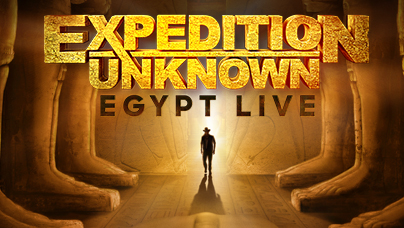Welcome to the era where technology and storytelling converge in a groundbreaking union – AI-Powered Docuseries. As documentary filmmaking continues to evolve, artificial intelligence is revolutionizing how stories are told on screen. Join us on a journey exploring the fusion of AI technology with the art of storytelling, uncovering how it is reshaping the landscape of documentary series as we know it. Get ready to delve into the realm where innovation meets narration in ways never seen before!

The Impact of AI on Documentary Filmmaking
AI technology has revolutionized the landscape of documentary filmmaking, offering new tools for filmmakers to enhance their storytelling. By utilizing AI algorithms, creators can analyze vast amounts of data to uncover compelling narratives and insights that may have been overlooked. This ability to process information at an unprecedented speed allows filmmakers to delve deeper into their subjects and present a more nuanced perspective.
Moreover, AI-powered techniques enable filmmakers to streamline the production process by automating tasks such as transcription, translation, and even editing. This not only saves time but also opens up possibilities for more creative experimentation in storytelling. Additionally, AI can assist in organizing and structuring large volumes of footage or research material efficiently.
The impact of AI on documentary filmmaking goes beyond just efficiency; it offers a new way of approaching storytelling by unlocking innovative methods of engaging audiences with immersive narratives that resonate on a deeper level. As technology continues to evolve, the potential for further advancements in documentary filmmaking through AI remains limitless.
Enhancing Storytelling Through AI Technology
Documentary filmmakers are now tapping into the power of AI technology to enhance storytelling in unprecedented ways. By utilizing artificial intelligence, creators can analyze vast amounts of data quickly and efficiently, uncovering new angles and insights that may have gone unnoticed before.
One way AI enhances storytelling is through predictive analytics, which helps filmmakers anticipate audience reactions and preferences. This allows for more targeted content creation tailored to specific viewer interests. Additionally, AI can assist in identifying trends and patterns within a narrative, helping to craft a more engaging and cohesive story.

Moreover, AI-powered tools like natural language processing enable filmmakers to transcribe interviews and footage with remarkable accuracy. This not only saves time but also provides valuable metadata that can be used to organize and search through vast amounts of content effortlessly.
In essence, the integration of AI technology in documentary filmmaking opens up a world of possibilities for storytellers looking to captivate audiences in innovative ways.
Case Studies: Successful AI-Powered Docuseries
AI technology has revolutionized the way documentary series are produced and consumed, leading to innovative storytelling techniques that captivate audiences worldwide. Several successful AI-powered docuseries have showcased the power of technology in enhancing narratives and engaging viewers on a deeper level.
One notable case study is “The Age of A.I.” produced by YouTube Originals in collaboration with Robert Downey Jr. This groundbreaking series explores how artificial intelligence is shaping various aspects of our lives, from healthcare to entertainment, through compelling storytelling and cutting-edge visual effects.
Another standout example is “Expedition Unknown: Egypt Live” where National Geographic utilized AI algorithms to uncover hidden chambers inside Egyptian pyramids during a live broadcast event. The combination of real-time data analysis and historical context provided an immersive experience for viewers, blending modern technology with ancient mysteries seamlessly.

These successful AI-powered docuseries demonstrate the endless possibilities that technology offers in pushing the boundaries of storytelling within the realm of documentaries.
Ethical Concerns and Criticisms
As with any technological advancements in storytelling, AI-powered docuseries also come with their fair share of ethical concerns and criticisms. One major issue revolves around the potential manipulation of information and narratives using AI algorithms. There is a fear that these technologies could be used to distort reality or spread misinformation under the guise of factual storytelling.
Moreover, questions arise about data privacy and consent when utilizing AI to analyze large amounts of personal or sensitive information for documentary purposes. The line between capturing compelling stories and invading individuals’ privacy can easily blur in the digital age.
Critics also argue that relying too heavily on AI technology in documentary filmmaking may diminish the human touch and emotional depth traditionally associated with this genre. While AI can enhance efficiency and creativity, some believe it cannot replace the nuanced perspective and empathy that human filmmakers bring to their projects.
Navigating these ethical dilemmas will be crucial as technology continues to shape the landscape of storytelling in documentary series.
Future Possibilities for AI in Documentary Filmmaking
As technology continues to advance, the future possibilities for AI in documentary filmmaking are truly exciting. One potential avenue is the use of AI algorithms to analyze vast amounts of footage quickly and efficiently, helping filmmakers sift through hours of content to find the most compelling moments.
Additionally, AI could revolutionize the way documentaries are personalized and tailored to individual viewers. By analyzing viewer preferences and behaviors, AI can recommend specific documentaries that align with a person’s interests, creating a more engaging viewing experience.
Moreover, AI-powered storytelling techniques have the potential to create immersive narratives that adapt based on audience reactions in real-time. This interactive element could transform how viewers engage with documentary series, making each viewing experience unique and dynamic.
Looking ahead, advancements in AI technology may also lead to collaborations between human filmmakers and intelligent machines. Together, they can push the boundaries of storytelling by combining human creativity with machine efficiency in ways we have yet to imagine.
Conclusion
In a rapidly evolving digital landscape, AI-powered docuseries are revolutionizing the way stories are told. The fusion of technology and storytelling has led to unprecedented advancements in documentary filmmaking, enhancing the overall viewing experience for audiences worldwide. As we continue to embrace the capabilities of AI in crafting narratives, we can expect even more innovative and compelling documentaries to emerge in the future.
The intersection of AI and storytelling opens up endless possibilities for filmmakers to push boundaries, challenge norms, and captivate viewers with immersive content that resonates on a deeper level. With technology as our ally, the future holds boundless opportunities for creativity and connectivity in the realm of documentary series production. Watch this space as AI continues to shape the landscape of storytelling like never before!
For more tech news, keep visiting QAWire


